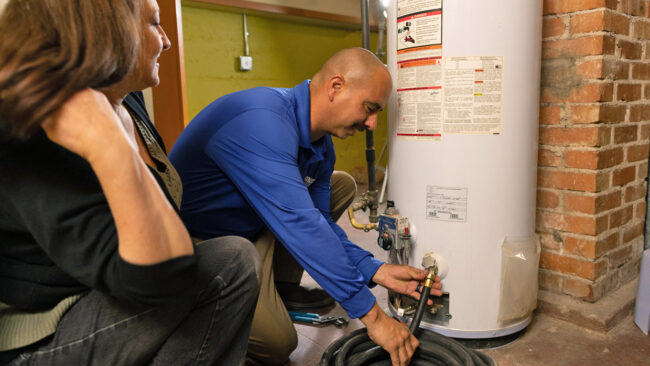Frozen Pipes: A Frosty Predicament
Maintaining your water heater’s seamless operation is one of the many obstacles that winter on a farm presents. A number of problems may arise due to the cold, increased demand for hot water, and more strain on your system. We’ll explore the common problems water heater farmers often encounter during the winter months and how to address them.
Frozen pipes are one of the most frequent problems on farms during the winter, which can stop the supply of hot water. Your pipes’ water might freeze when the temperature drops, leading to clogs and even pipe bursts. This not only throws off your daily schedule, but it also necessitates expensive repairs.
Consider insulating your pipes with specialist pipe insulation to keep them from freezing. A gentle trickle of hot water running through your faucets can also help prevent freezing. If your pipes do freeze, it’s critical to gently defrost them to prevent further harm. The damaged parts can be gradually defrosted using warm cloths or a heat source.

Consider installing a tankless water heater that can accommodate the increasing demand or a water heater with a higher capacity to counteract these issues. Regular upkeep and flushing can also ensure that your water heater runs at maximum efficiency and provides the hot water you require when you require it.
Sediment accumulation in your water heater tank is yet another frequent problem that seems to get worse over the winter. Minerals and detritus that over time accumulate at the tank’s bottom make up sediment. This accumulation can decrease the efficiency of your water heater, resulting in longer heating periods and higher energy usage.
Plan routine maintenance that involves draining and flushing your water heater tank to handle sediment accumulation. This procedure gets rid of built-up silt, making your water heater work more effectively and lasting longer.
In extremely cold weather, keeping the pilot light lit can be difficult for farms that use gas water heaters. The pilot light may go out due to a wind blow or a draft, leaving you without hot water.
Make sure your water heater is situated in a protected place or is adequately insulated to protect it from chilly drafts to help alleviate this problem. To further protect the pilot light from the outdoors, think about fitting a wind-resistant cap or pilot light shield.
In conclusion, your water heater may face particular difficulties on a farm throughout the winter. Common causes include frozen pipes, a rise in hot water demand, silt buildup, and problems with the pilot light. You can keep your water heater in good working order by taking preventive measures and doing routine maintenance, ensuring that you have a dependable source of hot water even in the coldest of farm winters.
